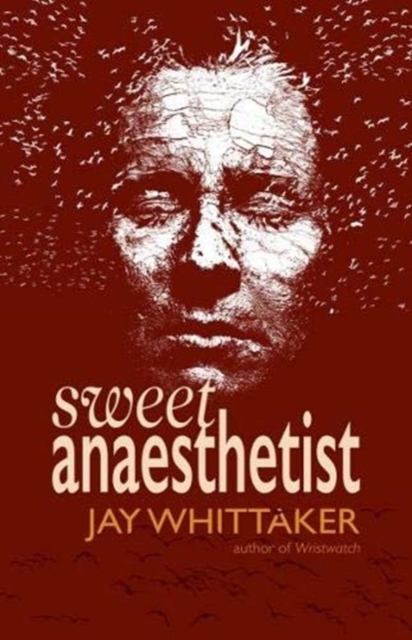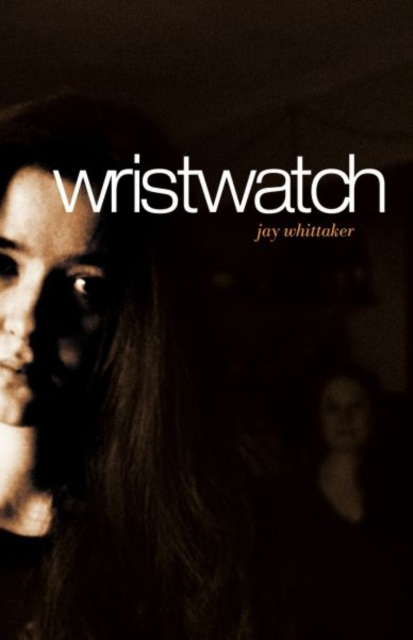Jay Whittaker talks to Peach of political poetry, feminism & more
Peach
Inspired by LGBT History month, 2019, this wee Life Raft offering from last summer is a conversation between Peach and the Edinburgh-based poet & feminist Jay Whittaker.
To set the tone, here is a wee recording of Jay, reading Radical, from her new collection Sweet Anaesthetist!
Peach: The poem ‘radical’ speaks of cracking open our identities, and this feels personal to us as a (radical) bookshop. Did these places of comfort and discovery inspire you to continue to discover yourself through poetry?
Jay: Oh, radical bookshops! Mushroom in Nottingham was a lifeline for me as a nascent queer teen in the 1980s. It was also a bit scary, plucking up courage to walk in, certainly at first. I was trying to uncover myself by exposing myself to ideas and influences that were otherwise unavailable, or transgressive, or hidden, or forbidden to me. There were radical zines, publications from beyond the UK - tantalising perspectives that confirmed my hunch that the world is more than it's made out to be. I remember well that shock of self-recognition, opening something in the shop and gulping down the words that might just liberate me. Then and now, radical bookshops feel like home.
The collection feels rooted in both Scotland’s natural and cultural landscape - is it this rootedness that made you question what it means to belong, and to resist?
I'm glad the collection feels so rooted here in Scotland because although I consciously moved and have made my home here, and it's the inspiration and backdrop to many of my poems, I don't entirely feel I belong. But perhaps that's life. I've never felt truly at home anywhere - particularly not in my family of origin. There's always an edge.
There’s so much urgency in your poetry that it reminds me of Audre Lorde’s ‘Poetry is not a luxury’. Do you feel that way? Do you feel, when writing, a call to arms?
I think the urgency stems from two things - the death of my civil partner in her late 40s, shortly after which I received a potentially life-limiting diagnosis. Having thought I might, like my grandmothers, make it to my 80s or 90s, I suddenly had to face the fact that I was very possibly close to the end of my life rather than halfway through. Audre Lorde, writing about living with cancer, spurred me on. Here's her call to arms: "I want to live the rest of my life, however long or short, with as much sweetness as I can decently manage, and doing as much as I can of the work I still have to do... I'm going to go out like a fucking meteor!" (Burst of light)
Why did you choose the lens of the day-to-day and their small material objects such as pen and ink to discuss the power of an established global order over the global marginalised?
How to respond to the enormity of recent events - the rise of the far right, the climate emergency? I feared that if I panned back too far I would be making generalisations that others have already made far more effectively and with more expertise and insight than I can. But I can focus on my discarded contact lens, or moths, or the ink in the President's pen. As a very short-sighted person, I know that sometimes it's hard to see the wider picture from where I stand, but to hold something close and take the macroscopic view might reveal something illuminating. Writing about the ink in the Presidential fountain pen as it signs off atrocities, I'm writing about all cogs in the machine. Including me.
There’s an exploration of the way we as a society can be quite clinical and dismissive of human experience and emotion. Do you feel that honest sharing of personal experience will make us more empathetic as a society?
What we know, or experience, shared honestly with consideration for others, has the power to transform. It requires active listening, too - a multi-directional process.
Could you tell us a little about the presence of older generations of women, and if that was important for you to include as a feminist poet?
I'm conscious that so many women have been written out of history, and that I am standing on the shoulders of those who went before me. I write about some of those pioneers, such as the aviator Amelia Earhart, or the artist Lee Krasner. They are prisms for my own experience, too, finding courage or struggling for expression after the death of a spouse.
What motivates you, as a feminist lesbian poet, to write about the personal and the political?
This question took me right back to sweating over my English Language & Literature finals in an exam room in Leeds in 1989. In desperate response, I wrote an answer that compared Oranges are not the only fruit with Middlemarch! I recognise that my own life has been created by the realities of the world around me. If I tell my truth, perhaps it allows - or spurs - others to find their voice too. We need multiple voices to be heard.
Jay's second collection, Sweet Anaesthetist, was published by Cinnamon Press in September 2020 and her debut collection, Wristwatch, was Scottish Poetry Book of the Year 2018 in the Saltire Society Literary Awards.
Linked Books

- title
- Sweet Anaesthetist
- author
- Whittaker, Jay

- title
- Wristwatch
- author
- Whittaker, Jay